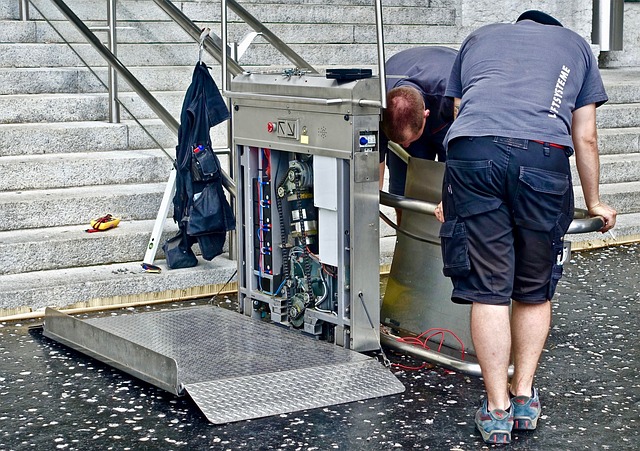First time home buyer, this is for you.
Buying a home is a big deal! The process can be stressful, it can take a lot of time, and energy. I know because I experienced it first hand! From figuring out your house budget to choosing the right location to negotiating the price, there are so many things to consider. However, with a little bit of planning, some patience, and some helpful tips, you can make the process smoother and more enjoyable.
Also Read: 9 Healthy Financial Habits You Need to Better Your Financial Future
8 Tips That Every First Time Home Buyer Needs to Know.
1. Do Your Research

Before you start looking at homes, do your research on the neighborhoods you are interested in. Check for homes on websites like Zillow or Trulia to find out the money range you are working with. This can help you estimate how much you will need in cash as you begin to shop for homes. Also, make sure to do your research on mortgage rates and real estate agents.
[I did my research for months before I started to house shop. I always checked the mortgage rates and the prices of the home I was interested in. This gave me an idea of how much cash I needed to have ready.]
2. Get Pre-approved for a Mortgage

A pre-approved for a mortgage helps you know exactly how much you can afford to spend on a home. A pre-approval letter will also show sellers that you are a serious buyer.
It’s important to shop around for pre-approval mortgages. Don’t settle for the first lender that comes along–there may be better rates and terms available elsewhere. Aim to do this during the 45-day mortgage credit check window as your credit score will be the least affected. This allows borrowers to shop for mortgage pre-approvals while only having a single inquiry posted on their credit report.
[I was not aware of this mortgage check window. Therefore, I ended up having multiple inquiries posted on my credit report which in return lowered my credit score. Don’t make the same mistake!]
3. Hire a Real Estate Agent

A real estate agent can be an invaluable asset when it comes to buying a home. They can help you find properties that meet your criteria, negotiate with sellers, and guide you through the entire buying process. They will also give you referrals to inspectors and real estate attorneys which you will need during this process.
Ask friends and families for referrals. Look up agents in your area and read their reviews. Look for an agent who has experience working with first-time homebuyers and who you feel comfortable working with. Ask them what their commission rate is and any other lingering questions you may have.
Once you pick one, give them a list of must-haves and nice-to-haves on your desired home so they can help you find a home that meets your needs.
[My real estate agent was professional and helpful, but overall I would not recommend him. His commission rate was on the higher end. I didn’t realize this until after the fact. Although I had an agent, I was constantly looking for homes on Zillow and Trulia as well. Every time I found one that I was interested in and always sent it over to my agent so he could get more information on the property. In fact, the home I ended up purchasing was a home I had found on Zillow and sent to my agent.]
4. Look Into First-Time Home Buyer Programs in Your Area.

If you need some financial help with your down payment or closing costs, there are programs available.
First time home buyer programs are mortgage loans offered by some states offering help to individuals purchasing their first home. It aims to help individuals with low to moderate income. Depending on the program, they can provide assistance with your down payment, closing cost, or with a reduced interest rate. Typically you will have to take a home buyer education course and submit a lot of paperwork but it can be worth it!
There are also particular programs for those in certain professions -such as educators, first time responders, medical professionals, law enforcement, and military/veterans. Some popular programs are Neighborhood Assistance Corporation of America (NACA), State of New York Mortgage Agency (SONYMA), Federal Housing Administration (FICO), and Good Neighbor Next Door (GNND) just to name a few.
[When I purchased my home I used SONYMA. They provided me with down payment assistance which helped me out a lot! Make sure you are aware of all the requirements, as well as, the terms and conditions of that loan/grant. If there are any penalties, etc. In hindsight, had I known about NACA, I would have tried them out first, as I have heard great things about them!]
5. Determine Your House Budget

Once you become interested in a home, you have to see if you can afford the payments associated with the new home. To figure out if a home is within your budget, you have to run the numbers. This will help you determine how much you can realistically spend on a home.
[When I ran my numbers, I made sure my mortgage contribution was a number I was comfortable with. I wanted an amount that wouldn’t stop me from reaching my other financial goals. I knew my first home would not be my dream home, nor would it be my forever home.]
Here’s how I ran my numbers for each house I was interested in.

I. Once you find a home you’re interested in, use an online mortgage calculator. (Bankrate has a great one.)
II. Enter the information with your real numbers using your pre-approval letter.
III. Then you will get an estimated monthly mortgage payment.
IV. Now calculate how much you expect to pay monthly on expenses like utilities and maintenance costs.
V. Now add both totals. This final number will give you an estimated total monthly payment for your housing expenses.
If applicable. If you are buying a multi-family house, ask your realtor to run numbers in the area of the house to see what rent for a similar apartment will be. Then you can subtract this from your total instep 6.
VII. Look at your current finances and see if you can afford this new monthly payment.
6. Place Your Offer

Understand the real estate market you are in. Is it a seller’s or buyer’s market? If it’s a seller’s market, chances are you will be in a bidding war with other buyers. If it’s a buyer’s market, chances are you can negotiate the price with the seller.
Regardless of the market, when it comes time to make an offer on a home, don’t be afraid to negotiate. Consult with your agent. They will use their expertise and help determine a fair price and negotiate with the seller on your behalf if needed. Remember, the worst thing that can happen is that the seller says no.
Additionally, even if your offer is accepted, you or the seller can still have a last minute change of mind if there was nothing signed.
[Fun fact, during my home buying process, one of my offers was accepted but after I drove around the neighborhood, I ended up rescinding my offer the next day. You want to make sure you feel comfortable at all times of the day in your future neighborhood. Additionally, when I purchased my home it was during a buyer’s market. So I asked my realtor to negotiate the price and that helped me save an additional $10,000.]
7. Get a Home Inspection

Before you close on a home, make sure to get a home inspection. A home inspection can uncover any potential issues with the property that you may not have noticed during your initial walk-through. This can help you avoid any unexpected expenses down the road. If there are any concerning issues, speak to your agent, you may be able to negotiate with the seller.
8. Always Have Extra Savings

Once you become a homeowner, the expenses do not end there. In fact, random home expenses will come up. For this reason it is important to have extra savings in the bank. This way when these unexpected expenses do arise they don’t leave you “house broke” or worse in debt.
Hopefully this list has answered some of your questions and addressed some of your concerns with your first time home buying adventure! This process can take several months. Remember to take your time, do your research, and trust your instincts!
If you feel that you need 1:1 support to help you get your finances right, schedule your free 15 minute discovery call so that we can discuss your situation and financial goals.

